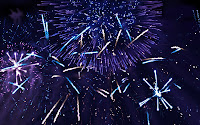Ø
Bertolt
Brecht (10th of February 1898 - 14th of August 1956)
§
German
poet
§
Playwright
§
Theater
director
§
During
WW1, he was 16 and sought to avoid having to fight by enrolling in an extra
Medical Course at Munich University, where he studied theater and became
inspired
§
In
autumn 1918, he was drafted – then posted back to Augsburg as a medical orderly
in a military VD clinic a month before the end of the war
§
Awarded
the Kleist Prize
§
Left
Germany when Hitler rose to power
§
Father
of Epic theater
§
“His
goal was to influence the audience into thinking about society and encouraging
change within it ” –
(Hubpages)
§
Ran
the Berliner Ensemble (post-war theater company) with his latest wife, Helene
Weigel
§
Died
of a heart attack at the age of 58
Ø
Brecht
acting techniques
§
Great
emphasis on gesture, particularly for demonstrating emotions
§
Focus
on body language and actions
§
Uses
ensemble, montage and stereotypes
§
“The
message is superior to character, the story and situation itself is more
important than the personal challenges within the situation” – (Hubpages)
§
Explored
theater as a “forum for political ideas and the creation of a critical
aesthetics do dialectical materialism” – (Wikipedia)
§
Epic
Theater: didn’t want the audience to feel
– wanted them to think!
o
Spectators
should not identify emotionally with the characters/ action
o
Provokes
a rational self-reflection/ critical analysis of what the spectators are
watching
o
Wants
the audience to identify the injustice/ problem, etc. in the hopes that the
solution proposed extends beyond the walls of the theater, and affects their
daily lives
o
Conscience
that theater’s a representation of reality
o
Verfremdungseffekt
(translated as "de-familiarization effect", "distancing
effect", or "estrangement
effect", and often mistranslated as "alienation effect")
o
“By highlighting the
constructed nature of the theatrical event, Brecht hoped to communicate that
the audience's reality was equally constructed and, as such, was changeable. ” –
(Wikipedia)
o
Direct address to the audience
o
Songs to interrupt the action
o
Harsh and bright stage lighting
o
Speaking stage directions out loud (during rehearsals)
 |
| Bertolt Brecht http://www.brechtsociety.org |
o
Explanatory placards
o
Addresses social and political issues
o
Gestus & Breaking the fourth wall
Epic
theater is remarkably similar to Chinese theater
Information from:
·
Encyclopedia
Britannica Online
·
Wikipedia
·
http://www.brechtsociety.org (for the
picture and info)

No comments:
Post a Comment